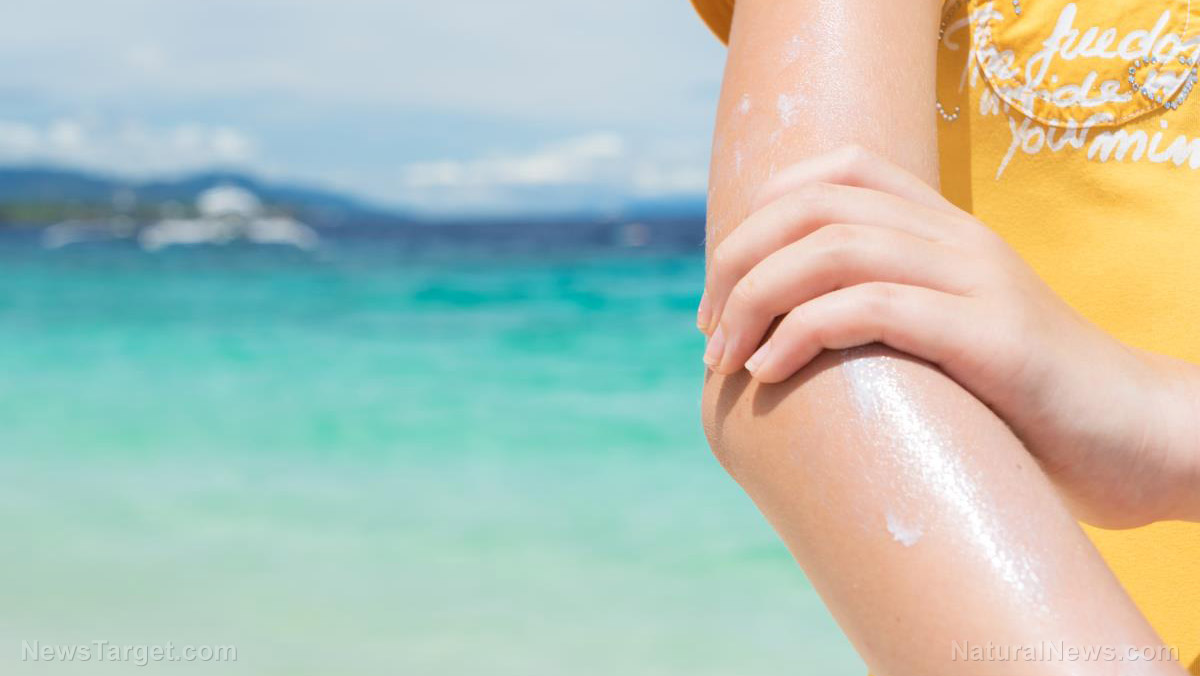Natural sunscreen: Mountain hydrangea extract may protect your skin from sun damage, according to research
07/14/2019 / By Melissa Smith

Too much exposure to sunlight can damage your skin. Unfortunately, most people rely on store-bought sunscreen for protection, which contains harmful chemicals that can further cause damage. Researchers from South Korea suggest mountain hydrangea (Hydrangea serrata), also known as tea of heaven, as a natural sunscreen.
In their study published in the journal Nutrients, the researchers found that mountain hydrangea extract could prevent damage caused by the sun’s ultraviolet B (UVB) rays. They reached this conclusion after analyzing the effect of mountain hydrangea extract on skin health using fibroblasts of human cell culture as well as hairless mice.
The researchers made their own extract by distilling dried mountain hydrangea leaves – which contain a compound called hydrangenol – with hot water for five hours. Then, they spray-dried the final product. Mountain hydrangea leaves are consumed as tea and medicine in the cultures of Korea, China, and Japan. The researchers examined the expressions of the matrix metalloproteinases enzymes, pro-collagen type I production, skin wrinkle formation, and hydration and transepidermal water loss of the skin.
For the human cell culture, the researchers exposed human skin fibroblasts to UVB rays. After this, they treated the samples with mountain hydrangea extract for 24 hours. Then, they measured cell viability and intracellular reactive oxygen species in the samples.
The mountain hydrangea treatment suppressed the generation of reactive oxygen species, which suggested that the extract has an antioxidant effect that may protect against photoaging damage. In addition, they saw that the treatment reversed the harmful effects of UVB exposure, such as collagen degradation.
For the animal study, they first subjected hairless mice to prolonged UVB exposure. Then, they supplemented the mice with mountain hydrangea extract every day.
The daily supplementation reduced the epidermal thickness, wrinkling, and transepidermal water loss in the skin of the treated mice. These findings supported the researchers’ hypothesis that the ingestion of mountain hydrangea extract may promote skin health.
Overall, the researchers concluded that mountain hydrangea extract may protect the skin from sun damage and treat sun-damaged skin by promoting collagen production and inhibiting enzymes called metalloproteinases, which cause the degradation of most extracellular matrix proteins like collagen. (Related: 7 surprising things you’re not supposed to know about sunscreen and sunlight exposure.)
The researchers were from Kyung Hee University, the Korea Institute of Science and Technology, and COSMAXBIO, a South Korean company that develops and provides ingredients to cosmetics brands all over the world. The study was also funded by a grant from the Korea Institute of Planning and Evaluation for Technology in Food, Agriculture, Forestry, and Fisheries.
Other ways to protect your skin from sun damage
Sunlight is the main source of harmful UV rays, which increase your risk of skin cancer. However, it doesn’t mean that you should avoid the sun completely. Your body still needs it to produce vitamin D, an essential nutrient for optimal health. What you should do is limit your exposure to UV rays – here’s how:
- Seek shade – Avoid being outdoors in direct sunlight for long periods, especially between 10 a.m. and 4 p.m., when UV light is the strongest.
- Wear protective clothes – Clothes can provide different levels of protection against UV rays. Long-sleeved shirts, long pants, long skirts, and other clothing that cover the most skin provide the most protection. Dark clothes generally protect better than light-colored ones, and tightly woven clothes provide more protection than loosely woven fabrics. Additionally, dry fabrics are more protective than wet ones.
- Wear a hat – Protecting your face and scalp from sunlight is also important. Wearing a hat with at least a 2- to 3-inch brim all around is ideal. This will protect not only your face and scalp, but also your ears. Wearing a hat with a fabric draping down the sides and back is also good as it will also provide more protection for your neck.
- Wear sunglasses – Wearing UV-blocking sunglasses is also important to protect your eyes and the delicate skin around the eyes. Research shows that staying for long periods in the sun without protecting your eyes can increase your risk of developing certain eye diseases.
Commercial sunscreens aren’t the only chemical-laden products to look out for – visit Cosmetics.news to read up on other toxic skincare products that you may be using.
Sources include:
Submit a correction >>
Tagged Under:
alternative medicine, collagen, herbal medicine, Herbs, Hydrangea serraa, mountain hydrangea, natural cures, natural health, natural medicine, natural sunscreen, prevention, remedies, research, skin care, skin health, sun damage, sun protection, sunlight, tea of heavan, ultraviolet B rays, UVB
This article may contain statements that reflect the opinion of the author
RECENT NEWS & ARTICLES
COPYRIGHT © 2017 REMEDIES NEWS





















